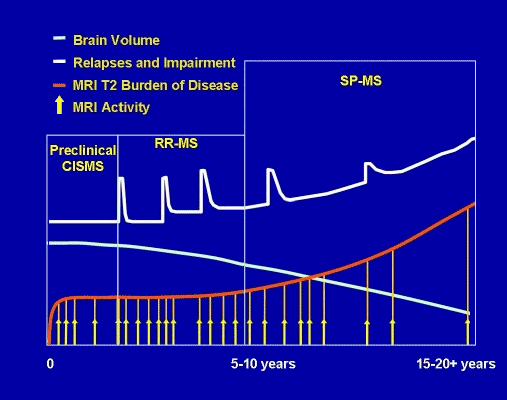I am a new member at this page. But I have been reading this page for several years. So today I pull myself together and registered
So then, I was diagnosed with PPMS 8 years ago. And of course I am longing for a favourable agent that will give a good risk/benifith ratio. Now this agent Ocrelizumab (brand name Ocrevus) had produced some buzz lately among pwMS´s. Some have aired hopes in connection to this agent. But I want to air some serious doubts regarding this agent.
OCRELIZUMAB - NOT A WALK IN THE PARK
I don´t think that the Ocrelizumab will be a walk in the park. Clearly it seems to have some serious safety problems with regard to malignancies. Also it has some dark history with regard to PML in previous halted trials in SLE (lupus) and RA.
The AAN 2016 Conference did not give any some light on the high incidence of malignacies (read: cancer) with with Ocrelizumab in PPMS, namely 11 patients - incidence 2.3%.
All in all, From that based on stuff presented or discussed at AAN 2016, it was 9 malignancies (or the 11 cancers reported) verses 0 in placebo and I think 6 breast cancer verses 0 in only one trial ...(!)
Now If we think it was only 3 malignacies v 0 in the cladribine (European originated drug) trial and this got rejected by the FDA what will they do to this American oriniated drug?
Therefore licencing may not be a slam dump
OCRELIZUMAB - SERIOUS ISSUES WITH REGARD TO SAFETY
Clearly, 2.3 % incidence of malignacies during the 2 year study with Ocrelizumab raises some serious questions about safety connected to Ocrelizumab.
Also what will happend in the long run when you put B cells on hold, a question that Professor Mark Freedman, a MS neurologist in Ottawa raised in this video from Ectrims oct 2015 (*Prof Mark Freedman starts talking about Ocrelizumab at the 3:50 mark of the video*): http://bit.ly/1T5XXDJ
And to be noted, what professor Steve Hauser stated after Ectrims Óct 2015 with regard to Ocrelizumab´s sister Rituximab (also CD-20 antagonist) efficacy with regard to keep RRMS patients away from SPMS, Quote:
" However, my initial enthusiasm for ocrelizumab has been dampened, giventhat a large number of my patients with relapsing MS who have been treated for 10+ years on rituximab have now developed SPMS. If this is correct then anti-CD20 B-cell depletion will not be a panacea. "
OCRELIZUMAB - HAS A DARK HISTORY
Also, the history with Ocrelzumab is not so light: Both in lupus and in RA Ocrelizumab were halted due to serious infections, some of them deadly, such as PML. So then, both studies were stoped due to severe infections, several cases of the deadly PML.
So, there bound to be some incidence of PML sooner or later in MS, as rituximab was not free from PML events, nor Ocrelizumab in the previous halted trials in RA and SLE.
OCRELIZUMAB - SISTER OF RITUXIMAB
These are he Box Warnings that came up Rituximab CD-20 in Non-Hodgkins lymfom (NHL): http://bit.ly/1T8IpnS (*Scroll down a bit on the page*)
The safety experience was made, to my best understanding, when it was given as a single agent in NHL and the doses used, to my understanding, are lower than those used in the phase III with Ocrelizumab. Now Roche would say, that would differ Rituximab CD-20 antagonist from Ocrelizumab antagonist (... everyone talks for their sick mother ...) in that Rituximab is a chimeric antibody and Ocrelizumab is humanised antibody.
But I would buy any sutch argument that Ocrelizumab should not earn the same Box Warnings as Rituximab, unless hardcore proof will show rational for this. Nor will independant well respected neurologs buy this argument either.
And these 8 to 0 malignancy events that occoured in the PPMS Ocrelizumab trial does not make the picture any better. Furthermore, Genentech/Roche have all the reason in the world to alienate themselves from Rituximab, since it would pose a threat for the company´s profit ambitions with Ocrelizumab ...
MY OWN CONCLUSION:
Now, I have personal doubts about Ocrelizumab safety in PPMS and in general. The efficacy in PPMS is very low. Also, the study were "pimped" or rigged with very early PPMS patients and with non aggressive version of it. With regard to RRMS ca 75% of the patients were naive; i.e. they have a rather benign version of RRMS. So both trials were loaded with responders.
Despite what Roches marketing department says, Ocrelizumab have some serious safety issues to deal with, especially with the high incidence of malignancy events (2.3% in PPMS trial), the history of severe deadly infections, PML in previous halted trials with Ocrelizumab in SLE/Lupus and RA, and the obvious bridge over the Rituximab and the safety issues with this very closely related agent.
So, I Think it would be vice for everybody to hold your horses for a while, with regard to Ocrelizumabs safety. It will never be a first line agent in RRMS. Furthermore, its use among PPMS will be limited, given its low efficacy and the high risks that goes with long term use of this heavily immunosupressive agent
No, Roche marketing department have been very skilled in creating positive Buzz about Ocrelizumab in the MS-Community. But I have my doubts about this agent. But more importantly, several prominent Neurologs have also doubts about risk /benifith ratio connected to Ocrelizumab, as aired above.
As for me, I am still waiting for a PPMS drug to be developed, with reasonable risk/benifith ratio. But Ocrelizumab (brand name: Ocrevus) is not the answer for me in my PPMS sickness.


